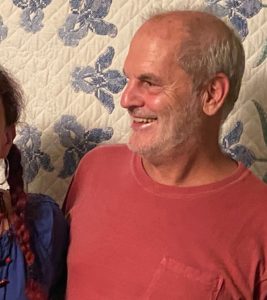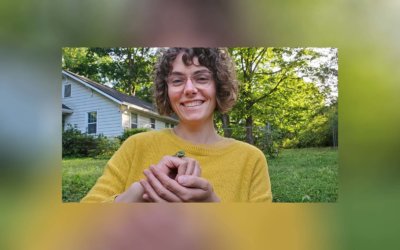The following is a submission to THINK ACT CONNECT, a platform to share action, inspiration, work, resilience, and justice
I got my first teaching credential from Antioch College and taught In Springfield and Xenia schools for a year before moving to San Francisco and graduate school in Special Education. Thanks to my varied Co-op experiences, I found myself at ease teaching in a wide variety of private and public school settings at all grade levels in the Bay Area. I am retired as of a couple years ago, though my website, www.kaulele.com, is still up albeit not updated since that time. This was my private practice where I provided individual academic support services and formal evaluation of learning disabilities for students and families.
There is quite a difference in typical education aspirations here on this rural island of Kauai compared to Silicon Valley. Twenty years ago I bemoaned the lack of aspiration here. That has changed for the better over time, but we have a long way to go. At the same time, I’ve come to bemoan the culture in other places where so much stock is put on high-pressure achievement and the belief that if a kid falls the tiniest bit short of “excellence,” their future is doomed.
I always had to maintain private tutoring clients to supplement my grand teaching salary. Computers were introduced into the public elementary school where I was working: six computers for six weeks twice a year for fourteen classrooms! I had seen the power of the computer as a writing tool in my private tutoring practice and realized it would be ages before initial experimentation with technology was going to take hold as meaningful change in the public schools. I decided to go full time into private practice and established a tutoring and evaluation practice (www.qwertyed.com is still operating under different ownership) that featured the use of computers for writing instruction in one-to-one teaching. I also became the part-time technology director for a prestigious independent elementary school in the heart of Silicon Valley.
It was there that I watched the slow transition in teachers’ and parents’ expectations for computers. Even in that environment, I could see that people thought the computer would be the teacher and perhaps serve as a fancy typewriter that would do all the spelling for the kids. For years I fought the school’s policy that kids should learn to use computers at school but should not use computers to do any homework “because it would do too much of the work for them.”
I always advocated for the computer to be a tool, not a teacher. They were, in fact, not good teachers then, though in fact after 35 years, they are increasingly capable of more. Schools now broadly embrace computers to varying degrees, with a broad range of strategies and a range of efficacy, but it has been a long, slow march. Now, though, we have a true revolution in education as a consequence of earth-shattering disruption.
So here we are in a brand new world, and suddenly the “Computer Revolution” is here all over again, but this time millions of people have far better tools and widespread experience with them in their daily life. We truly are ready and able for the Computer Revolution this time in a large portion of our population, though certainly not all. I’m optimistic.
I hope people will forgive themselves for any mistrials or omissions as they navigate this sea of change. I am reminded that at Antioch I forewent a classical education and have resulting gaps in traditional content, but at age 17, I became a teacher in my first year of college and had two full years living “like an adult” in the real world before launching into a full-time career. My career was exciting, innovative, and successful by many measures. It would have been a whole different thing had I pursued a traditional college education. Millions of young people are suddenly on their first Co-op job. They don’t need to simply find a way to replicate the classroom experience; they are on a new path that can take them to different places. At the very least, we will have a generation of kids that will know how to cook and clean like none other: talk about life-long skills! But it’s much more than that, too, and I’m excited to see where it leads.
No doubt there is tragic loss in the realm of child welfare that this sudden loss of schooling means for so many. Schools and students are suffering right now, but I am optimistic for education. People will take advantage of technology because they have a socially-driven need – technology we had all along in recent years but teachers and schools have not employed to capacity. Now they will learn, and schools will be more empowered to innovate. I never forgot the poster on the wall of Bill Harwood, my first education advisor at YSO: a black rectangle followed by a green rectangle and the caption ‘You are looking at the biggest change in public schools in 50 years.’ The transition won’t be easy, and people are worried about how they can recreate the classroom curriculum effectively. I’m not. The quarantine experience is the greatest Co-op job students will ever have, and the Co-op experience was the greatest part of my nearly two decades of schooling.
About Mark A. Carey '75

Mark Carey received his Bachelor of Arts, Elementary Education from Antioch College in 1975, and his Master of Arts in the Education of Exceptional Children from San Francisco State University.
Mark established Kaulele Education Services in September, 2000. As a Learning Specialist, he is credentialed and trained to evaluate and teach students of all ages, including those with specific learning disabilities, ADHD, and other learning challenges. He builds supportive, individual relationships with students and their families that bring improved understanding, practical strategies, and inspiration for academic success.



0 Comments